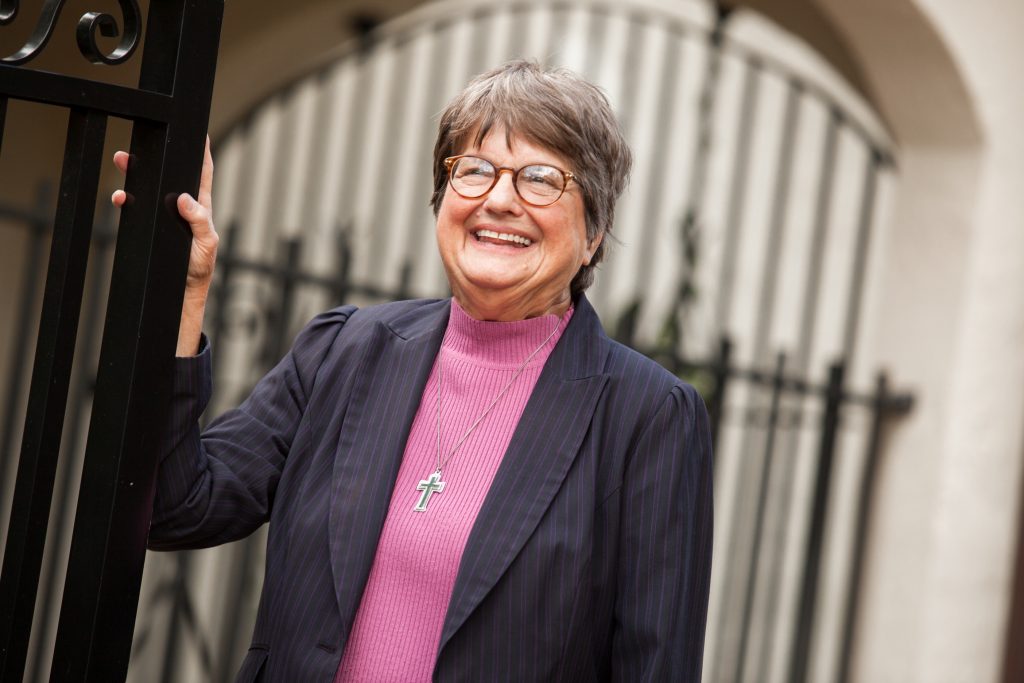Capital punishment has been used in the United States since its independence from the United Kingdom and is still applied in many of the 50 states today, with most executions in Texas, Virginia, Georgia, and Alabama. Over time, advocates have agreed that the death penalty is morally wrong and they argued that it should be considered unconstitutional, yet they have not achieved an end to capital punishment in either state legislatures or in the Supreme Court.1
During the 1700’s, advocates against the death penalty were able to restrict this punishment to those committed heinous crimes. In 1847, the anti-death penalty community helped capital punishment to be removed from Michigan. This was changed after World War I ended. In 1924, the state of Nevada decided to use lethal gas as an execution process. Then came the execution of Gee Jon for murder, which brought back death as the punishment for inflicting death or murder. 2 Anti-death penalty movements did not regain strength until Sister Helen Prejean helped to cast the debate in different terms.

Since 1981, Sister Helen Prejean has been a strong voice, and a most prominent one in the anti-death penalty community. Most humans and governments will not heed God’s commandment Thou Shall not Kill, but Sister Prejean became a strong advocate for that commandment. Beyond the religious imperative, Prejean explains how capital punishment is not useful in any way and is very dysfunctional. She has dedicated her life to God in the prison ministry in New Orleans. While Sister Prejean was living in the St. Thomas housing project, she began to write to a man who was convicted of killing two teenagers, Patrick Sonnier. Sonnier was to be executed by the electric chair in the State Prison of Louisiana.3
While Sister Prejean continuously visited Sonnier, she realized that executions were a huge issue, not only in Louisiana, but around the world. Sister Prejean wrote about her experiences in the book she wrote Dead Man Walking: An Eyewitness Account of the Death Penalty.4 She writes and explains how Louisiana’s prison system corrupts those who are involved with carrying out the execution. Especially security guards or “prison wardens” are not alert when working, along with working in that environment, is the feeling of being stressed. The stress can cause them to react in a certain ways toward prisoners and even accept the death penalty against them.5 Prejean mentions how many politicians support the death penalty mainly because they do not want to be mocked for being weak on crime by having an anti-death penalty stance.6
Helen Prejean during these times took the initiative to spend time with the victims’ families and understand why the death penalty is a win for them. The reason the victims’ families believe this is a pro for them is because it is “healing” and they receive “faux closure”. During those fifteen years, she continued to witness five other executions in Louisiana and to this day gives the younger generation information on the death penalty by writing and giving lectures.7
Prejean always took the anti-death penalty to the political system and even caused a few battles with some victories that were not big, but in that time it was still something to her. She did everything she could to gain justice, but the movement ultimately could not completely end capital punishment in the US.8

Prejean did her best to abolish the death penalty and she always gave many reasons for it, but with the issues coming against the fear of criminals and the devaluation of human lives, it is still unlikely to see its eradication in the US. Today, Prejean as the founder of “Survive” runs this victim’s advocacy group in New Orleans. In addition to that, she counsels inmates who are on death row and she provides support to the families of victims who were murdered.
Barry Scheck’s Innocence Project helps those who are innocent to increase awareness and prevent execution. Prejean has received an award from the Innocence Project of Florida for her outstanding work in advocating against the death penalty. “Sister Helen asked…”, during her speech, “…but what about the people advocating and fighting for them and the people working at innocence projects?”.9
No matter the outcome, fighting for what is morally right continues to drive advocates who stand against the death penalty. Prejean will continue to investigate flaws in the death penalty system which has led to many innocents being wrongly executed. Sister Prejean questions the justice system because of the discriminatory way that capital punishment is disproportionately applied to minorities. As she continues, there is still hope in Washington for the Death Penalty to be removed. Senator Miloscia warns against the killing of innocent people, he calls these “improper death penalty executions.”10 Although many still support the death penalty, change occurs when new elected officials like Governor Inslee pronounce themselves against capital punishment. As we learned from Sister Prejean, fighting for justice is a moral commandment.
- George Brauchler and Rich Orman, “Lies, Damn Lies, and Anti-Death Penalty Research,” 93, no. 3 (2005): 635-714. ↵
- McLaughlin, Jolie. “The Price of Justice: Interest-Convergence, Cost, and The Anti-Death Penalty Movement,” Northwestern University Law Review,108, no. 2 (2014): 675-710. Academic Search Complete, EBSCOhost. ↵
- “Biography” Sister Helen Prejean. https://www.sisterhelen.org/biography/.(2018). ↵
- Helen Prejean, Dead man walking: an eyewitness account of the death penalty in the United States, (New York: Vintage Books, (1994). ↵
- Lewis, Dorothy Otnow, Catherine A. Yeager, Pamela Blake, Barbara Bard, and Maren Strenziok. “Ethics Questions Raised by the Neuropsychiatric, Neuropsychological, Educational, Developmental, and Family Characteristics of 18 Juveniles Awaiting Execution in Texas.” Journal Of The American Academy Of Psychiatry And The Law, 32. No.4 (2004): 408-429 PsycINFO, EBSCOhost. ↵
- Daniels, Kristen Whitney. “Helen Prejean sways hearts with stories.” National Catholic Reporter 53(24), (2017): 1a-2a. ↵
- Press Release. “Innocence: Another Exoneration from Death Row—Reginald Griffin of Missouri,.” Death Penalty Information Center. (2015). ↵
- Mallory, Conally. “Abolitionists at home and abroad: a right to consular assistance and the death penatly.” Melbourne Journal Of International Law no. 1 (2016). ↵
- De La Fuenta, Alejandra. “My Experience at Innocence Project of Florida’s 2016 Steppin’Out Spring Gala.” Plain Error: The Official Blog of The Innocence Project of Florida. (2016) ↵
- Lauren Gill, “End of the Death Penalty? Washington Could Become the Next State to Abolish Capital Punishment” Newsweek, (2018). ↵



121 comments
Lilliana Canales
The death penalty isn’t going anywhere simply because it’s cheaper to put someone to death than to keep taxing citizens to support inmates. It truly is heart breaking for innocent people who were wrongly put in prison to have to lose their lives, but for those who are complete monsters, a city has one criminal to worry about. One could only hope that sister Prejean could save people.
Sebastian Carnero
Interesting article. Whether you consider capital punishment effective, is because of people like Sister Prejean that we can remember to keep the matter on debate and reconsider the idea. It is better having long debates and stay doubtful than taking the call with many people silent. I really appreciate how she didn’t only speak because of pure opinion, she gave her thought after talking with victims and criminals.
Mariana Valadez
The Death Penalty has always been a controversial topic in America. Sister Prejean was extremely brave and had so much drive in order to do what she did. She is very brave and no matter what stance you have I am sure anyone can agree on this. This article was very well written and had me hooked the entire time.
Alexis Martinez
The death penalty is one of the most widely known and controversial topics of today. I personally agree with the death penalty but I respect Sister Prejean for her bravery to fight for what she believed in and the time she dedicated for the prisoners facing the death penalty. It takes a certain type of person to fight for what they believe in despite many disagreeing especially for 15 years of her life. That is a level of dedication that many would not go to.
Madeline Torres
The death penalty is one of the most controversial topics to be discussed. Sister Prejean is in fact very courageous to speak against it so openly and without shame. Sister Prejean was the light for many of these prisoners sentenced to the penalty, I’m sure. Her voice and her want to change the views of many is very inspirational and courageous. She fought for her beliefs and I am sure she changed the opinion of many with her debates and opinions based on the death penalty.
Eloisa Sanchez Urrea
Capital punishment has been a very controversial topic from the beginning. By some it is considered immoral and against religion, while others believe that it is the only fair punishment for certain crimes. I found this to be a very interesting article because it described the perspective of someone who is very active with religion, Sister Prejean. The article described that her argument against capital punishment was not simply that it went against God, but that it is dysfunctional even took a political stance.
Adrian Cook
The death penalty has been a very controversial topic for a long time now and I believe that nobody should have it. What sister Jean is doing for the country is amazing as she’s doing all she can to better the world we live in. She’s providing support to families and victims to help them get through a very tough process. I believe she will make a difference in the world and change the way the death penalty is looked at. Although I have never heard of sister Jean I will definitely keep her in mind.
Nathalie Herrera
The death penalty can spark a very heated argument. Although, what I admire most about Helen Prejean is her passion on changing something she believes is the right thing to do. She voices strong opinions and arguments that make sense and are in some ways justiable. She doesn’t just say random thoughts, but feelings that truly embrace herself as a character. She does not give up easily and that is one thing I admire most about her. Great read!
Daniela Cardona
The death penalty is widely debated throughout the country. Many people believe it’s wrong and others find criminals to be deserving. Regardless of your stance, however, I think anyone can respect Sister Prejean’s work. She demonstrates devotion, authenticity, care and drive. The fact she has dedicated so much of her life to the cause is astounding. She is well educated in the topic, having talked to victims and their families for 15+ years and has every right to voice her opinion. I think she is using her voice in a positive and respectable manner. Even if she cannot get the death penalty revoked, she is doing great things.
Crystal Baeza
Reading this article was definitely admirable and encouraging. I appreciate how Sister Helen stood up for her beliefs even if she knew many were against her. It’s not easy standing up against a tough topic that can hurt others in different ways. I, myself see both sides against and for death penalty but don’t think I can actually do what Sister Helen was able to do. The fact she actually visited prisoners and heard their side of the stories is amazing and not many people are capable of doing.